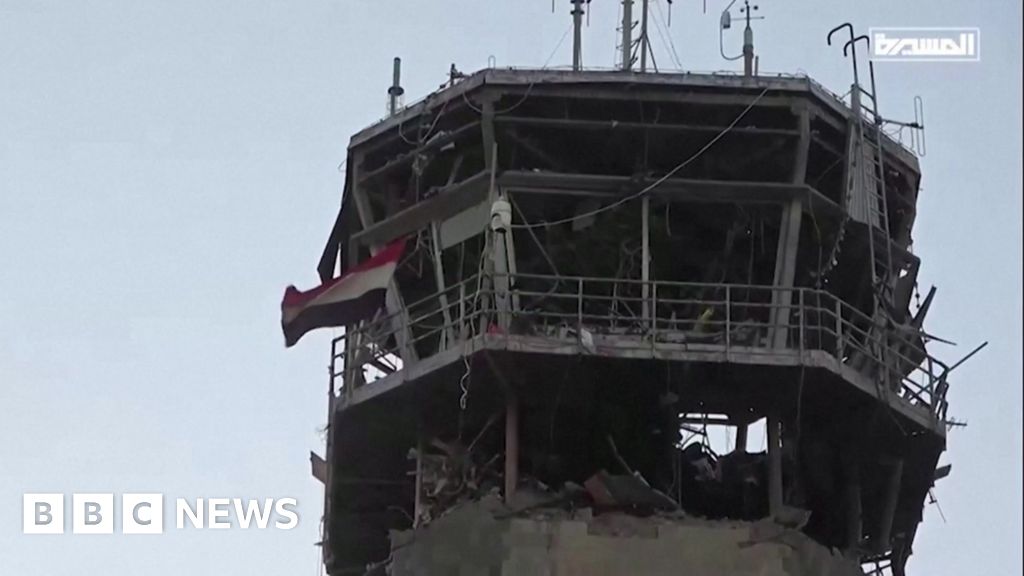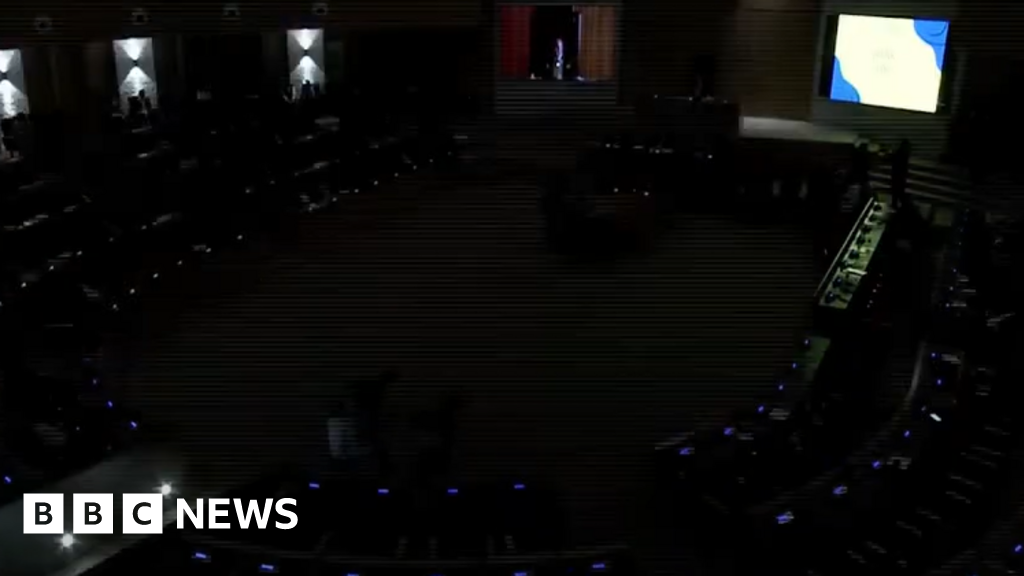ISRAEL is preparing to blitz Iran’s nuclear bases in a joint mission with the US while Iran is “isolated and weak”.
The IDF is readying itself for the strikes after it wiped out 85 per cent of the remnants of Assad’s military - clearing the way for its aircraft and missiles.
Netanyahu's government has now confirmed it will capitalise on the rare opportunity to strike Iran after the Islamic nation’s allies have been dropping like flies.
Israel has taken out 85 per cent of the anti-aircraft systems in Syria with a wave of 480 strikes, according to sources from the country, giving it total superiority in the skies.
Syria under the dictator Assad was Iran’s closest ally, so Iran is much more isolated and vulnerable now his evil regime has been cleaned out.
Iran’s puppet group in Lebanon, Hezbollah, is also incredibly weak after a damaging conflict with Israel, which further clears the way for decisive action.
READ MORE ON THE MIDDLE EAST
Israel has been considering strikes on Iran’s dangerous nuclear programme for years but has held off, partly because the US has always warned against it.
An international security expert told The Sun in October that the time was “now” for Israel to disable Iran’s threat, and developments since then have only improved the opportunity.
David Albright, the Founder of the Institute for Science and International Security, told The Sun that Iran’s nuclear facilities were “legitimate targets” for Israel, because there were genuine fears of Iran ramping up its nuclear production.
Those fears are growing even stronger now that Iran is weakened, because it may be more desperate than ever to develop nuclear weapons as it feels so threatened.
Iran has always denied it is trying to develop nuclear weapons and says its space program and nuclear activities are for civilian purposes.
However, US intelligence discovered that Iran had an organized military nuke programme until 2003, and Israel believes the mission was never truly abandoned.
Assad's 24-year regime toppling 'like a house of cards' marks the end of Iran's ring of fire around Israel, expert says
Israel’s plan is also forming amid concerns that ISIS could stage a comeback by exploiting the current lack of government and structure in Syria.
The US has not confirmed it will join Israel's anti-nuclear mission, but incoming President Trump is said to be “weighing options” to buckle Iran’s nuclear project - and airstrikes are on the table.
This would mark a step-up from the US, which has long held a policy of avoiding direct military action against Iran.
Trump and Israeli prime minister Netanyahu have spoken since the American’s sweeping election victory, and Trump has made clear he wants to avoid an Iranian “breakout” during his presidency.
He is also keen to avoid triggering a war that involves the United States, however.
The government-in-waiting is currently working on a “maximum pressure 2.0” plan, which will involve the kind of firm sanctions against Iran Trump oversaw in his first term.
Gabriel Noronha, who worked on Iran policy in Trump's first government, said: “There is strong support [for Trump's team] for Israel to take military action as they deem in their interests."
“Iran does not have much room to go before they hit [Israel’s] red lines, and they still seem intent on escalating further.”
Israel is sensing this opportunity after it launched a barrage of strikes on the dregs of Assad’s military in Syria.
The strikes from the skies began at the weekend and continued this week in order to stop the weapons “falling into terrorist hands”.
The preventative attacks were concentrated in western and southern Syria, near Damascus, and targeted both air and naval bases.
Most of Assad’s naval fleet at the port of Latakia was obliterated, and dozens of sea-to-sea missiles destroyed here.
Israel’s airforce also took out an ammunition convoy near the Qamishli airbase thought to house Iranian missiles.
A research centre with links to chemical weapons - which Assad is known to have used against his own people in 2012 - was also targeted.


















 English (US) ·
English (US) ·